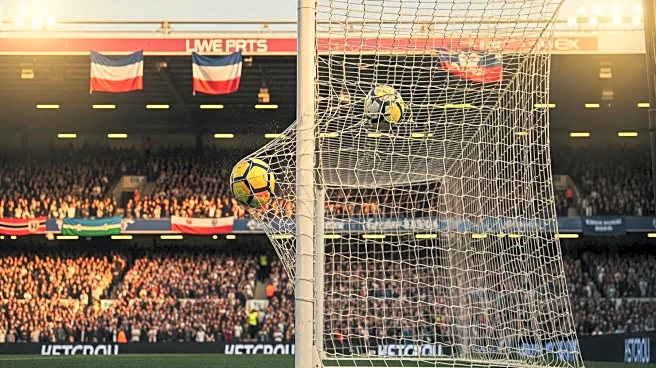What's Happening?
The Premier League is experiencing an unprecedented number of stoppage-time goals this season, with 33 goals scored after the 90th minute out of 240 total goals. This marks a significant increase from the previous season's 8.6% to 13.7%. The trend was
highlighted by a record-breaking day in September when eight stoppage-time goals were scored. This surge in late goals is adding excitement to matches but also raising questions about game management and defensive strategies.
Why It's Important?
The increase in stoppage-time goals is reshaping the dynamics of Premier League matches, often altering outcomes in the final moments. This trend could impact team strategies, with managers needing to focus on maintaining concentration and defensive solidity until the final whistle. For fans, the unpredictability adds to the excitement, but for teams, it presents challenges in securing results. The phenomenon may also influence refereeing and time-keeping practices in the league.
Beyond the Headlines
The rise in stoppage-time goals could lead to discussions about the psychological and physical demands on players, as well as the effectiveness of current training and recovery protocols. It may also prompt a reevaluation of how injury time is calculated and managed. The trend highlights the importance of mental resilience and tactical flexibility in modern football.
















